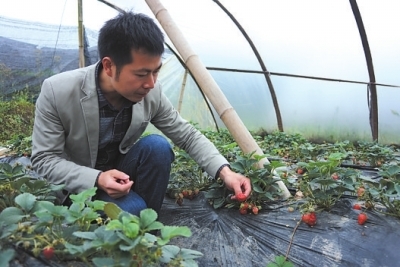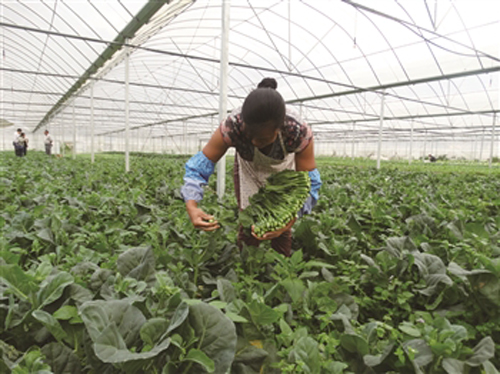Dig deep into the camel industry and read well the "scriptures of getting rich" for farmers and herdsmen
On March 24, at the First Exchange Meeting and Commendation Conference on Camel Raising and Prosperity of Border Herdsmen held in **, Manati Nurdanbek, a 34-year-old Kazakh herder, shared his "Cultivation Classic" as the winner of "Leading to Prosperity Award" and "Outstanding Contribution Award" for developing camel industry in Fuhai County.
After graduating from the music department of ** Normal University, this college student returned to Dien Village, Karamagai Town, Fuhai County. Influenced by the income increase of local herdsmen raising milk camels, he began to purchase milk camels to develop breeding industry in 2012. From the initial 10 peaks to the present more than 100 peaks, his family pasture has a strong annual income, with a net income of more than 300,000 yuan last year.
** Altay Prefecture has a long history of camel breeding and is the most concentrated place of camel breeding in China. The camel population accounts for about 20% of the total camel population in China for a long time. However, camels gradually lost their load-bearing function in the process of herdsmen's mechanized transition, and the number of camel population gradually decreased due to factors such as grassland desertification. With ** Wangyuan Biotechnology Group settled in Altay Prefecture in 2007, camel breeding, especially milk camel breeding, is the most concentrated in Fuhai County, the value of camel breeding has been deeply explored and become a follow-up industry for settled herdsmen.
"Camel economy" radiates all over Xinjiang
Manati Nurdan Buick, who holds a red medal and certificate with the words "22000 yuan" written on it, looks full of air. This young man who gets rich by raising camels is actually a representative of many well-off herdsmen.
Akdara Milk Camel Breeding Professional Cooperative is located in North Trunk Canal Village, Karamagai Town, Fuhai County. It was established by Kazakh Herdsman Murzabek Tapi in 2013 in conjunction with other ten herdsmen. At present, nearly 1000 camels are raised. Among them, Murzabek Tapi has its own camel 130 peaks. Inside the cooperative, warm circles and hay fields were neatly arranged, and herds of camels were eating hay leisurely. Three Kazakh women milked camels with a mechanical milker, which ensures freshness and efficient milking.
Because this experience exchange meeting gathered 300 representatives of camel-raising rich herdsmen from **, Inner Mongolia, Ningxia, Qinghai and Gansu provinces, seeing the camel-raising achievements of herdsmen in Fuhai County, Jiangbu Dejid, Mongolian herdsmen in Wulanhada Village, Bustun Pasture, Hebuksail Mongolian Autonomous County, could not help but "bask" their families.
Jiang Bu Dejide said: "I started raising camels in 1991. In 2011, I led 11 villagers to form Junggar Red Camel Breeding Cooperative. Now I have raised 450 camels." Last year, the cooperative earned 450,000 yuan, and each household earned 41,000 yuan from camel farming."
This time Jiangbu Dejid came to Fuhai County. In addition to exchanging camel raising experience with camel farmers everywhere, he also wanted to reach cooperation with Wangyuan Group on camel milk supply.
During the observation and exchange, Wang Xingrui, chairman of Karamay City and Ruixin Animal Husbandry Farmers Professional Cooperative, also felt a lot. He said: "Our cooperative is located in Xiaoguai Township, Karamay District, Karamay City. It is owned by 5 farmers and herdsmen. It was established in 2008 with a registered capital of 12.5 million yuan. At present, the cooperative has more than 700 large camels and 220 young camels. The main income comes from the sale of breeding camels and young camels. Camel milk has almost no benefit. We also hope to reach a cooperation intention with Wangyuan Group, so that the economic added value of the cooperative camel farming industry will be higher."
The prosperity of camel breeding and camel milk processing industry in Fuhai County makes the "camel economy" in Altay Prefecture rise rapidly, and radiates and drives the industrialization development of animal husbandry in Changji Prefecture, Tacheng Prefecture, Hami City, Dabancheng District of Urumqi City, etc., making camel industry another channel for farmers and herdsmen to increase their income and become rich.
Animal husbandry poverty alleviation "rules to follow"
"Developing camel industry is the first choice for border farmers and herdsmen to become rich." said Chen Gangliang, president of Camel Branch of China Animal Husbandry Association and chairman of Wangyuan Biotechnology Group Company.
After nine years of development, Wangyuan Group has become the only private enterprise in China with independent intellectual property rights for camel milk deep processing, camel series product research and development and camel product deep processing. There are 4 series of more than 20 kinds of products, daily processing of fresh camel milk 20 tons, products in the country has a high visibility. The company innovates and establishes a brand-new interest linkage mechanism of "enterprise + financial institution + breeding base". By guaranteeing loans to local financial institutions, helping farmers handle loans and borrowing from farmers with self-raised funds, the company guarantees loans of more than 30 million yuan for farmers and herdsmen to help farmers and herdsmen expand their milk camel breeding base.
"The biological habits of camels determine that they cannot be kept in captivity and can only be stocked. In addition, the management rights of pastures are mostly scattered in the hands of herdsmen. It is unrealistic for enterprises to invest in standardized breeding bases." Therefore, the mode of "enterprise + financial institution + breeding base" not only solves the bottleneck of capital restriction in the development and production process of farmers and herdsmen, but also eliminates the concern of financial institutions that loans cannot be repaid on schedule, and at the same time provides sufficient fresh camel milk source for enterprise development. Camel farmers and herdsmen will pay 50% of their monthly regular milk payments back to financial institutions, and the other 50% for daily needs. Generally, they can pay off their loans within two years." Chen Gangliang introduced said.
It is estimated that the annual milk sales income of breeding a peak milk camel reaches 15,000 yuan, excluding 30% of the feeding cost, the net profit is more than 10,000 yuan. "Farmers and herdsmen raise 10-peak milk camels with an annual income of 100,000 yuan, which can get rid of poverty in that year; breeding more than 20-peak milk camels with an annual income of more than 200,000 yuan can quickly run towards a well-off society." Wangyuan Group General Manager Liu Hanfu said.
Algun Alfu, a villager of Halabiya Village, Jiete Ajele Town, Fuhai County, had never raised camels before 2011. After seeing villagers in the same village raise camels to become rich, he and his wife found Wangyuan Group for help. The enterprise applied for a two-year loan of 200,000 yuan from Fuhai County Rural Credit Cooperative in the form of asset guarantee, so that Algun Alfu bought 20 camels. He earned 150,000 yuan from selling camel milk in that year. Within two years, Algun Aleph had not only paid off all his loans, but also built a new house. The next year, he applied for a loan from Wangyuan Group, which took out 200,000 yuan from its own funds to help him buy 20 new milk camels. Now, these camels have grown to 130 peaks, and Algun Alef has become known as a "milk camel farmer."
Fuhai County County Mayor Selik Habken said, Relying on the leading role of enterprises, Fuhai County issued preferential policies to support milk camel breeding, established milk camel breeding association, milk camel economic cooperatives and "camel care center," formed a production, supply and marketing integrated industrial chain. Fuhai County has also bundled camel industry development projects of animal husbandry, science and technology, people's clan committee and poverty alleviation office, and has invested more than 40 million yuan to subsidize farmers 'investment in shed construction, milk camel purchase and milking equipment, benefiting 837 households. At the same time, it cooperates with the Academy of Animal Husbandry Sciences of the Autonomous Region to strengthen the breeding of improved milk camels and improve the yield level and quality of milk camels. These measures promote the rapid rise of camel industry in Fuhai County. In 2013, Fuhai County won the honor of "Camel Milk Capital of China" and "Excellent Model of Chinese Animal Husbandry Industry" in 2014.
In just a few years, the number of milk camel farmers in Fuhai County has grown from more than 200 to 1850 at present. Four milk camel breeding cooperatives have been established, with the number of camels reaching 19,000 peaks (the number of milk camels reaching more than 10,000 peaks). Radiation has driven the development of milk camel breeding industry in 10 surrounding counties (cities) and driven the per capita income of farmers and herdsmen to increase 400 yuan.
"Camel farming is the best way to effectively drive herdsmen to increase their income and become rich. Camel milk economy will certainly become a potential new force in farming and animal husbandry economy in Altay Prefecture centered on Fuhai County." Altay District Committee member Baktiv Inayat said.
- Prev

Zhejiang businessmen have invested nearly one million yuan to grow fruits in Leshan.
Zhejiang businessmen have invested nearly one million yuan to grow fruits in Leshan.
- Next

Ziyun Huohua Township, Guizhou: a vegetable base with people from a rich village
Ziyun Huohua Township, Guizhou: a vegetable base with people from a rich village
Related
- A course of planting techniques and methods on how to grow carrots
- How to plant the latest tulips?
- Is it better to pick tea in the morning or in the afternoon? When is the best time for tea to be picked? what is the third or fifth tea?
- Launch Yuanxiao Happy combination Haocha + Tea Yuan healthy Taste
- Penghu Tourism "Fireworks 20 Parade with You"
- 2022 West Lake Happiness holds "Digital Revitalization Voucher" and draws iphone13 and laptop.
- Banqiao Fuzhou social houses are designed to change start-up combined with police elimination to create a safe and livable environment
- The convenient measure of "mechanical weeding" in Xinbei has been abused and the Agriculture Bureau has imposed heavy penalties on the illegal land consolidation.
- Changgeng University Joins Hands with Four Memory Factories to Rescue Memory Talent Shortage
- The list of Taiwan's top 100 MVP managers is listed by the Director-General of the Farmers' Association of Sanxia District.

